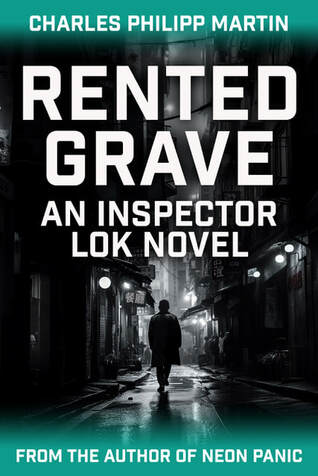Hear the Conversation | Get the Book

On weekend mornings, in a narrow Greenwich Village apartment, Charles Phillip Martin woke to the disciplined fury of Chopin. The arpeggios came from his father, a Viennese opera conductor for whom music was not a profession so much as a daily calisthenic. The apartment itself, though, belonged to his mother. She was a brilliantly scattershot translator whose closets, when opened, threatened avalanches of paper and possibility.
From this domestic split screen, the metronome clicking on one side of the wall, the charming chaos on the other, a novelist was conscripted. “You need discipline to get through a novel,” Charles says. “But you also need the willingness to be messy. At first, everything looks like my mom’s closet… then I channel my dad and sit down every day at a regular time.”
The oscillation between rigor and improvisation has marked Charles’s life as cleanly as a bar line. As a child he sang in the Met’s chorus; in high school he plugged in an electric bass for rock bands, then traded it for the upright, conceding to the jazz and classical currents “running through my veins.”
A “six-year paid vacation” with the Hong Kong Philharmonic, his phrase, lengthened, as happy arrangements do, to seventeen. In that polyglot city, he acquired a second métier: columnist, radio host, a quick-study ethnographer of the place’s layered tempos. Cantonese custom braided with British residue, and of the expatriate mind, which, he notes, finds a peculiar ease in believing it “only belongs where it doesn’t belong.”
Hong Kong, teeming and unembarrassed, is the true lead in Charles’s new crime novel, Rented Grave. Inspector Herman Locke, first introduced a decade ago in Neon Panic, returns. Locke is an intentional affront to the genre’s most reliable crutches. “I decided I did not want a detective with a drinking problem or an ex-wife he didn’t get along with,” Charles says, tipping his hat to the masters who perfected that register. “When (Michael Connelly’s Harry) Bosch comes home, he pours a scotch and listens to Coltrane. That’s me. I love it. But he did it right. He’s already done it.”
Locke, by contrast, is anchored. He adores his wife, Dora, and lives in a state of amused awe at her instincts; like many policemen’s spouses Charles has met, she is, inconveniently, the better detective. His antagonists are not bottles or punitive brass but “strivers,” colleagues whose fondness for headlines outpaces their patience for justice.
In the interrogation room, a space he treats like a finely tuned instrument, Locke cleaves to a simple physics of truth. “Nothing anyone says matters unless you put pressure on them,” Charles explains. “Then you get the truth.”
If Locke supplies ballast, the plot is kicked into motion by his inverse: Horace Yang, a man curdled by thwarted ambition. An accountant by trade and grievance by temperament, Horace fixes his misfortunes on the man who double-crossed him years ago. When he stumbles upon this old nemesis, now a moneyed gangster, he opts for murder.
The weapon is a just-purchased kitchen knife, the target, a limousine. The outcome: disaster. He kills the wrong man, the driver, tidying ashtrays in the back, and, panicking, seizes the passenger beside him, who happens to be the gangster’s grandson. A failed murder begets an inadvertent kidnapping and a lifelong also-ran tumbles into a criminal center ring.

